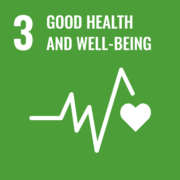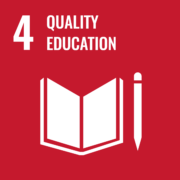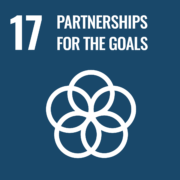Governance
Social Participation
Overseas Medical Mission Teams
Eswatini Medical Team since 2009
Since January 2009, TMU has been sending medical team to station permanently in the Kingdom of Eswatini to provide medical services, collect and analyze local medical condition data, and assist in the development and promotion of health strategies. In addition to permanent stationed services such as providing regular outpatient clinics at the Mbabane Government Hospital, the National Defense Force and industrial zones, the team plans numerous sessions of specialized medical services each year according to the medical needs of the Eswatini people, and also conducts many free clinics.
Taiwan Health Center in Marshall Islands since 2008
To improve the overall medical and health quality of the Marshall Islands, TMU Shuang Ho Hospital has established policies over the years to help build the local medical information system, medical education system and public health protection network. Continuing to dispatch specialized medical teams to provide specialized medical services to improve care quality and service capacity, TMU aims to develop a comprehensive integrated medical network for the local community. The long-term objectives are to effectively reduce the country’s high rate of diabetes, provide an effective medical management system, and enable the Marshall Islands to cultivate its own medical staff.
Student medical service
Bilateral cooperative education curriculum with Nepal
Since 2016, TMU Overseas Medical Service Team has been going to Nepal to establish bilateral cooperative education curriculum. TMU students have designed courses focusing on oral hygiene, general physical examination, and health education for the local school children. In addition, for dental technicians in Nepal, TMU students also constructed a bilateral cooperative curriculum, and established a dental training program to provide systematic training and ongoing treatment assistance. They also develop training and health education materials and skills assessment plans to improve the medical standards of local dentists.
Promote the Cambodia-Taiwan Education Project (CTEP)
Since the launch of the Cambodia-Taiwan Education Project (CTEP) in 2019, TMU has taught health education courses to teachers from remote areas in Cambodia. The teachers then return to their original school of service, and in turn teach the health education courses to local students, thereby benefitting more students and improving their living environment and health conditions. By training teachers from the rural areas, health education knowledge can be cascaded to many villages where resources are inadequate, thereby forming a sustainable model of operation. Through a series of field testing, medical kits are distributed to local residents to provide wound prevention and treatment for children to reduce the health threat of parasites to the local children. The study results are communicated with the local primary schools and health centers, and recommendations for treating parasites are made to local health organizations.
Small Hands in Big Hands Companionship project for sick children
TMU student clubs are encouraged to provide community services during regular school semesters. The Black Bear Hospital (TBBH) organized by students from the College of Medicine goes to the Xinyi Elementary School affiliated kindergarten, located at TMU’s neighboring block, with fun health education courses to improve health understanding of pre-school kids. The Fengxing Medical Youth Service Team goes to the TMU Hospital children’s cancer ward during the semester with their Small Hands in Big Hands Companionship activities to provide therapeutic entertainment and bring some fun to hospitalized children during their treatment and facilitate interaction between the children and their parents.
Volunteer Service
TMU is dedicated to promoting the educational philosophy of service learning and expects students to learn progressively. The basic learning in service and community care in the first year cultivates foundational knowledge on service, and is aligned with the application of professional service knowledge during the second year and thereafter. Services science is incorporated to strengthen student training in scientific thinking. Students learn to self-supervise their service design, service innovation and service management in the service learning process. TMU hopes that through their service learning process, students can cultivate their service capability, practice capability, caring capability (empathy) and leadership capability to prepare themselves for the medical profession in the future.


